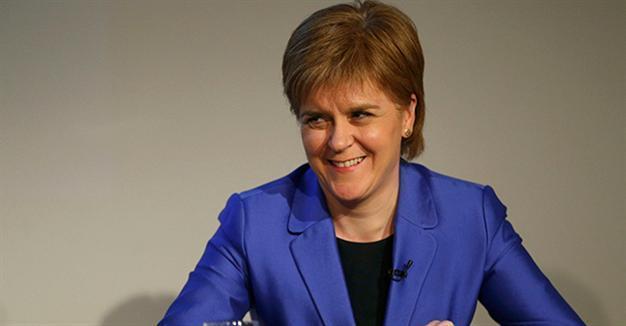Sturgeon says Scottish independence vote likely if she wins election
LONDON - Reuters

REUTERS photo
Scottish nationalist leader Nicola Sturgeon said a second referendum on independence was "more likely than not" in the next five years if she wins an election on May 5 as polls predict.The pro-independence Scottish National Party (SNP) had said it would not press for another vote on independence until it was clear most Scots wanted to leave the United Kingdom.
Sturgeon said on May 1 that she believed opinion would shift in favour of a break away, with the cause boosted by the prospect of Britain voting for Brexit next month.
"Do I think (a referendum) is more likely than not? Yes," she told the Sunday Herald newspaper.
Pressed on whether a vote would come while she was first minister, she said: "I would like to think that's the case."
"If I can't persuade more people than we persuaded in 2014 of the case for independence then there won't be. But if we can then I think there will be."
Voters rejected independence by 55 to 45 percent in a referendum in 2014, but went on to win a sweeping victory in a national British election in 2015, taking all but three of Scotland's 59 seats in parliament in London.
The SNP's manifesto pledges another independence vote if Scotland is forced out of the European Union "against its will" via a British referendum vote to leave the bloc on June 23.
"If we do see rising support for independence, and certainly the prospect of Brexit I think if Scotland voted to stay in, would definitely lead to growing demand for Scottish independence," Sturgeon said on the BBC's Andrew Marr show.
"If we see that growing demand, then nobody has the right to stand in the way of that."
But she added that she wanted to be sure she could win another referendum before calling one.
"We would want to see clear and sustained evidence that independence had become the preferred option of the majority of people in Scotland," she said.
















